Iwariwa the cayman refuses to share the fire that he uses to cook his food, until the animals of the Venezuelan rain forest come up with an ingenious scheme to trick him, in a traditional myth from the Yanomami people of South America.
Author: Book Importer
Light: Stories Of A Small Kindness
El Valle De Los Cocuyos
The Blacksmith and the Devils
In this Argentine version of a Hispanic folktale, a blacksmith makes a deal with the devil to extend his youth and good fortune.
Locks, Crocs and Skeeters

Illustrations, maps, diagrams, concise biographies, and many interesting facts are used to tell the story of the building of the Panama Canal, as well as to give insight into the struggles and sacrifices that were made by those who played their part in its construction.
The Gold Coin
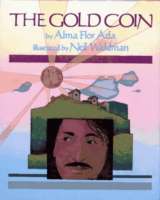
Juan has been a thief for many years. So when he peeks through a crack in Doã Josef´s door and sees a gold coin in her hand, he immediately decides to steal her treasure. Stealing it, however, is not as easy as Juan had thought, and soon he is traveling around the countryside, trying to catch up with the old woman and her gold. But as this original tale with a Central American setting shows, there are other, human kinds of treasure waiting to be discovered.
The Magic Bean Tree: A Legend From Argentina
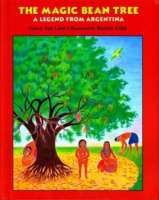
In the middle of the wide Argentine pampas there once grew a magic tree. Above this tree slept a bird so evil it could stop the rain from falling. And not far from this tree lived a brave boy who one day set out to save his village and all the creatures from dying of thirst. Illustrated with charming folk-art-like paintings and retold with simplicity and drama, this legend of a child’s courage and faith explains why Argentineans believe that good luck can be found in the shade of a carob tree.
Macchu Picchu: The Story Of The Amazing Inkas And Their City In The Clouds (Wonders Of The World Book)
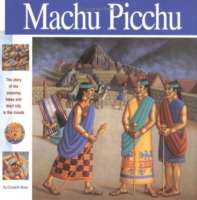
Was there ever a people like the Inkas?
Using slingshots, clubs and stone-tipped spears, this small Andean tribe conquered an area spanning 2,500 miles. Without the use of the wheel, they built a vast and sophisticated network of roads. Without an alphabet, they administered a population of ten million people. With the most primitive of tools, they built cities of stone.
Machu Picchu is as astonishing as its builders. Set in a remote, inaccessible area of the high Andes, this breathtaking city was never found by the Spanish Conquistadores. It is an untouched example of the genius of the Inkas.
Machu Picchu tells the story about the rise of the Inkas and the building of this great city. Award-winning author Elizabeth Mann has become justly famous for engrossing narratives that make distant worlds comprehensible and complex engineering feats accessible. In Machu Picchu, these talents are displayed to their fullest.
Amy Crehore’s paintings convey a fabulous world that seems at once intensely real and dream-like. Her luminous pallette is an Inka tapestry unfaded by time.
Wonders of the World series
The winner of numerous awards, this series is renowned for Elizabeth Mann’s ability to convey adventure and excitement while revealing technical information in engaging and easily understood language. The illustrations are lavishly realistic and accurate in detail but do not ignore the human element. Outstanding in the genre, these books are sure to bring even the most indifferent young reader into the worlds of history, geography, and architecture.
“One of the ten best non-fiction series for young readers.”
– Booklist
La Ciudad De Las Bestias / City Of The Beasts
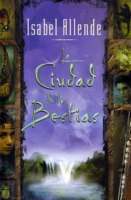
Alexander Cold, un joven de quince años, tiene la oportunidad de hacer el viaje de su vida. Dejando atrás a su familia y a su madre enferma, Alexander Cold se embarca con su temeraria abuela, reportera de International Geographic, en una peligrosa expedición al Amazonas. Su misión y la de sus compañeros de viaje — entre otros, un célebre antropólogo, un guía local y su hija Nadia, y un doctor — es documentar al legendario Yeti del Amazonas, más conocido, como “La Bestia.”
En el mundo oculto de la impenetrable selva tropical, Alexander descubre mucho más de lo que jamás se hubiese imaginado. Con la fuerza del jaguar, el animal tótem elegido por Alexander, y el águila, la guía espiritual de Nadia, ambos jóvenes se dejan guiar por la invisible gente de la neblina en una apasionante e inolvidable aventura que los Ileva al descubrimiento de . . .
En una deslumbrante novela de aventuras, la célebre escritora, Isabel Allende, Ileva a sus lectores por el misterioso sendero, de dos búsquedas personales en un viaje épico, Deno de realismo magico, al corazon del Amazonas.
Ninez: Spanish Songs, Games, And Stories Of Childhood
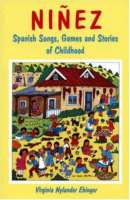
More than forty verses, games and stories of Spanish childhood folklore have been collected by the author from research based largely on archival materials gathered by WPA writers in the 1930s and in current interviews. A number of the pieces can be traced directly to Spain and were brought to America by early explorers and settlers. They serve as a link between the old and new worlds–a way to retain cultural and historical memory and transmit it to succeeding generations. Many interesting variations have occurred over the centuries, always the way with true folklore, as children have played the games and the stories have been told and retold. Literal translations, rules for playing the games and music for some of them are included. Winner of the Southwest Book Award from the Border Regional Library Association.


